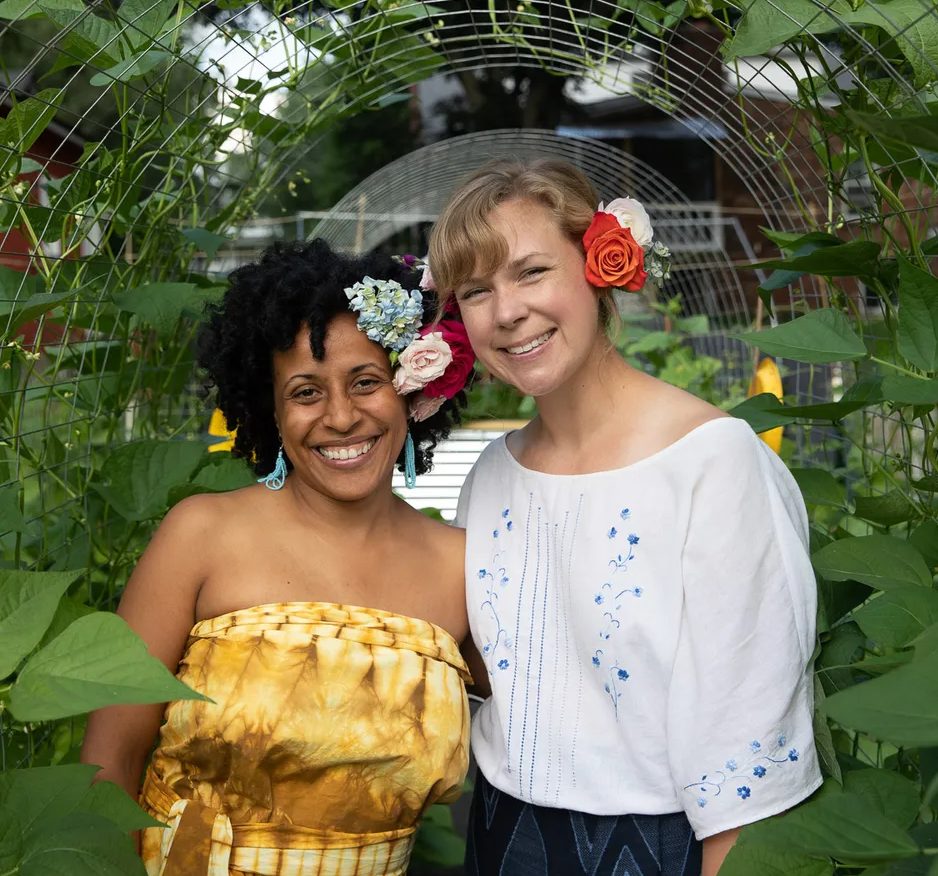by Stephanie Manning

But on September 18, Sororii provided their audience with that and more at Trinity Cathedral. Bassoonist Arleigh Savage and cellist Carolina Borja created some mid-day merriment as part of the Cathedral’s BrownBag Concert Series.
The duo’s instruments — both lower-pitched with warm timbres — fit naturally together, even though there isn’t a ton of music written for this exact pairing. Luckily, Savage and Borja are contributing to the canon with some original compositions. Most of the program they brought to Trinity came off their album Esperanza, recorded in 2022 with funding from New Music USA.
During their one-hour set, the duo deployed plenty of creative ways to keep the small audience engaged. Looping pedals added depth on almost every track, and the musicians used that audio system both to record sounds in the moment and to play pre-recorded percussion. Other fun additions included a rainstick, different sized bows for Borja, and call-and-response singing.
In “Spirité,” the cheery bassoon melodies balanced perfectly amid many intertwining lines of cello and percussion — a refreshing experience for an instrument that is often difficult to mic. And the lovely acoustics of the Cathedral certainly didn’t hurt. “I feel like the best bassoonist in the world,” Savage joked.
Although big, reverberant places can sometimes muddy dynamics, the duo had no problem with the sensitive volume changes in selections like “Ain’t No Sunshine” by Bill Withers.
Sororii derived their name from the Latin “soror,” meaning sister, and the theme of supporting and honoring women appears frequently in their work. In the selections “Sisters” and “Ancestros (Wildest Dreams)” the two pay homage to the women who came before them, and the opening “Bay” memorializes one woman in particular. Borja wrote this somber track in remembrance of a late family mother figure, with the plaintive singing style drawn from her Afro-Colombian heritage.
Savage also opened up about her emotions before “DNS DNR,” a more recent track that reflects on her personal experiences with depression. She described learning to manage her symptoms as “dancing with the darkness,” a sentiment she also reflected musically by layering the bassoon’s high and low registers.
Along with these precious moments of vulnerability, both women were equally open to celebrating themselves as well. “Free” gave them a vessel to experiment, using sliding pitches, percussive hits to the body of the cello, bassoon multiphonics, and improvisations.
And the toe-tapping “Lunita” rejoiced in their inner children, with the bouncy bassoon line highlighting some of what the instrument does best. As the audience joined in with the singing, the smiles were infectious.
“If we thrive, the world thrives,” Borja summarized. Amen, sister.
Published on ClevelandClassical.com September 25, 2024.
Click here for a printable copy of this article



